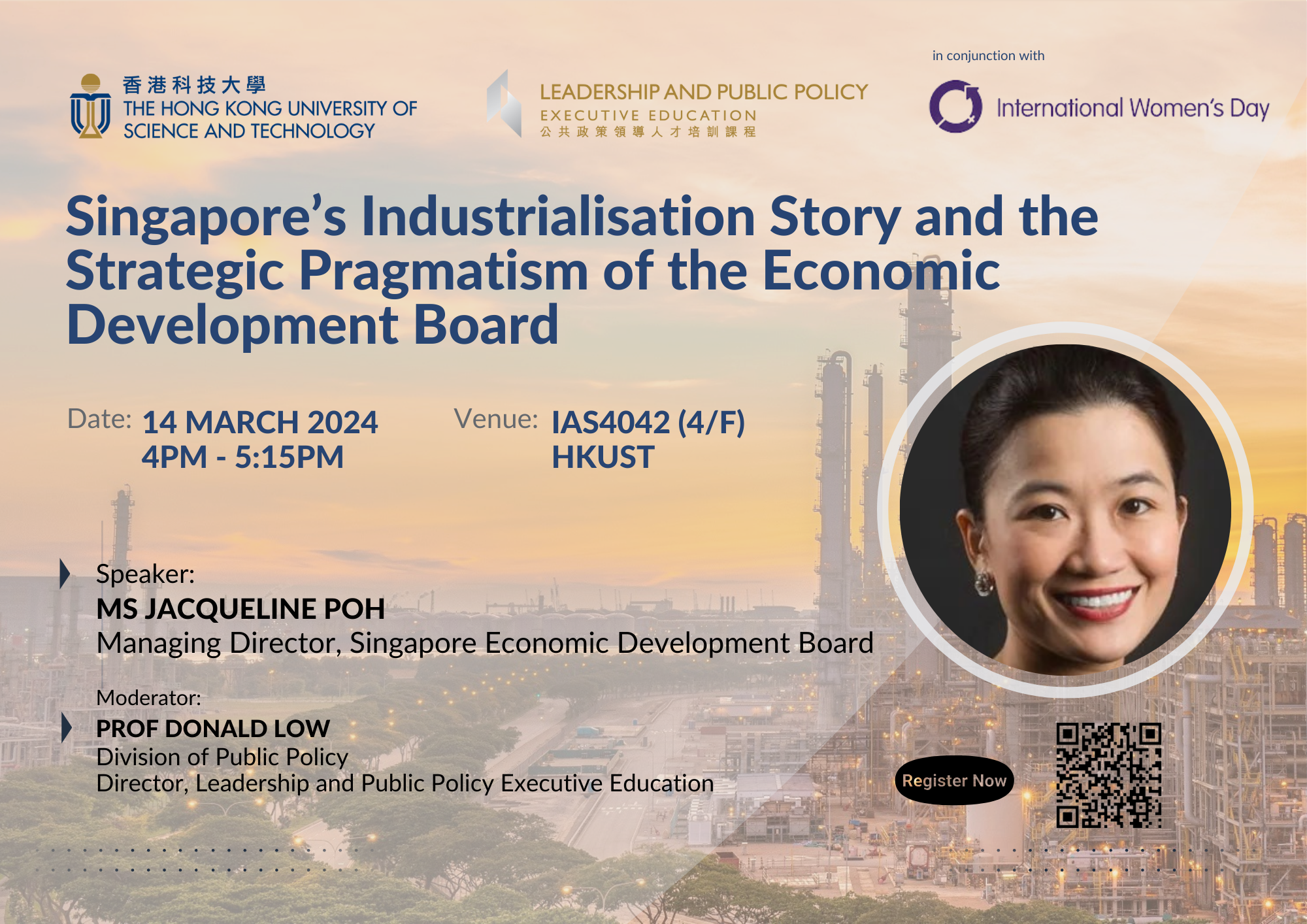Moderator: Prof. Donald Low, Division of Public Policy and Director, Leadership and Public Policy Executive Education
Venue: IAS4042 (4/F), HKUST Jockey Club Institute for Advanced Study (Map HERE)
Mode of Attendance: In-person
Registration Link: https://ust.az1.qualtrics.com/jfe/form/SV_cC2L8putPqsJCia
Synopsis
Manufacturing in Singapore accounts for nearly 20 percent of GDP in spite of the fact that the country is a land-scarce, resource-constrained, and (increasingly) expensive city-state. Clearly, Singapore’s competitiveness in manufacturing has more to do with enabling and supportive policies by the Singapore state than with market-based advantages. Singapore’s Economic Development Board (EDB), established in 1961, is widely credited for the island-state’s transformation into a global manufacturing powerhouse. The EDB is also often highlighted as a case study of strategic pragmatism (Schein 1996) and embedded autonomy (Evans 1995). What lessons can developing economies – including middle-income ones such as China – draw from Singapore’s industrialisation story? How will ESG demands and developments in automation and AI affect the prospects of manufacturing-led growth? And as it tries to re-industrialise, how might Hong Kong adapt some of these lessons?
Singapore’s superior performance was not just because it was the superconnector of Southeast Asia. Instead, Singapore established itself as a key node in global value chains in a number of high value-added industries – electronics, petrochemicals, pharmaceuticals and biotech, and precision engineering to name a few. By contrast, Hong Kong’s economy has become too specialised in a few highly correlated services – finance and insurance, real estate, trade and logistics, business services and tourism – and is too reliant on growth in the mainland.
“Hong Kong’s economy needs reinvention to become more than just China’s superconnector”, South China Morning Post
18 Feb 2024
Prof. Donald Low

